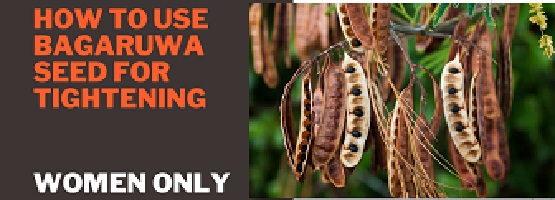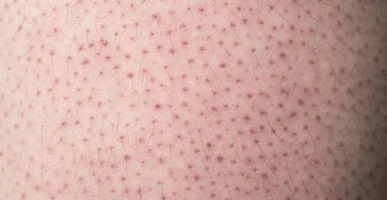Bagaruwa Uses: How to Use Bagaruwa for Tightening/Infection
Bagaruwa Uses: How to Use Bagaruwa for Tightening & Infection. Please Watch >>>>

- How Women Use Acacia Bagaruwa Seed for Infection and Tightening
- How to use bagaruwa seed for tightening and infection for women only
Bagaruwa Uses for women: How to Use Bagaruwa seed for Tightening & Infection
The solution for you, if you’re having issues with your reproductive health, is bagaruwa seed. irregular periods, an awful odor down there, and an excessively open feeling, especially in the area of the infection?
Women have long utilized the bagaruwa seed plant to regain their dignity, first in the northern part of Nigeria and now in the southwest. Its name in English is acacia.
Trending Topics Right now
- Health Benefits of Bagaruwa/Acacia & Side Effects for Women
- Bagaruwa/Acacia Health Benefits for Women & fertility
Bagaruwa Seed Uses:
Women who have recently given birth, those who are infected, or those who feel “large,” if you know what I mean, are the ones who utilize it the most.
Age and childbirth are the only two factors that can reduce your vag suppleness.
Age
Starting in your 40s, you could notice a difference in the suppleness of your vag. As a result, your estrogen levels will start to decline as you enter the perimenopausal stage.
A loss of estrogen means your vag tissue will become:
- Thinner
- Drier
- Less acidic
- Less stretchy or flexible
Once you’ve entered full menopause, these changes might be easier to see.
How to use bagaruwa seed for tightening and for infection – Recipe for Cleansing & tightening
There are natural methods available that tighten the vagina without the need for medications, one of which is bagaruwa.
The bagaruwa seeds are cleaned, crushed, and cooked with a tiny amount of cloves added.
Then allow cooling slightly so that you can sit in the bath to steam. Please do not let the water become too hot to prevent burns.
After that, spend at least 20 to 30 minutes sitting on it. With consistent practice, it aids in tightness.
Infections of the reproductive tract are also treated with it.
As an alternative, purchase some decent soft bagaruwa powder and combine it with honey.
Alternatively to Bagaruwa Uses,
Get a good soft bagaruwa powder and mix it with honey, it will be sticky.
Then smear the mixture. It works wonders as a natural tightener.
The powder can be combined with Vaseline.
Dosage
You will notice changes within 4-5 days at most.
The following are a few benefits of bagaruwa seed for steaming and sitz bathing: Bagaruwa Uses
- Reducing menstrual symptoms, such as bloating, cramps, exhaustion, and heavy bleeding
- Treating and relieving pains of hemorrhoids.
- Increasing energy and reducing fatigue
- Treating headaches
- Boosting female fertility
- Promoting healing after childbirth
- Reducing stress
- It May help restore vaginal pH
- Reduces inflammation and scarring after vaginal delivery
Side effects of using bagaruwa
Since it is a true natural herb, it is safe and all-natural. However, if not used correctly and in accordance with instructions, it can result in burns down there.
The infection you are trying to treat or avoid may occasionally be introduced by steaming with bagaruwa, particularly the yeast infection known as candidiasis.
Vaginal steaming with bagaruwa can be dangerous if a woman is pregnant.
This is because of the possibility that the steam from the bagaruwa could harm the developing embryo and could result in miscarriage, pregnancy loss, or premature birth
My suggestion on Bagaruwa Uses
The vagina is a self-cleaning organ that maintains a balanced ph level on its own
Additional measures, such as vaginal steaming or douching with bagaruwa and other herbs, are not necessary to maintain vaginal health.
The greatest way to maintain the vagina’s health is to keep it dry, clean, and perfume-free.
Hence, the majority of women shouldn’t try steaming with bagaruwa, cloves, or any other herbs.
And if they MUST, it is best to exercise extreme caution to reduce the risk of burns and infections.
FAQs about Bagaruwa Uses
How to use Bagaruwa Seed for Tightening – Bagaruwa for Fertility
When a woman consumes the seed or drinks the water from the bagaruwa plant, it is thought to have numerous positive effects on her reproductive system and her chances of becoming pregnant.
The benefits of the plant have been attested to by numerous ladies who use bagaruwa. It is frequently used as a libido and ovulation booster.
Our ancestors used bagaruwa to cure illnesses and as a fertility booster. Bagaruwa water is supposed to stimulate ovulation and control the menstrual cycle.
Bagaruwa is thought to promote libido in males, treat dysfunction, and increase fluid count, and production.
What are the health benefits of Acacia seeds? Bagaruwa Uses
This dietary fiber can dissolve in liquids. Acacia is administered orally as a medication to lower cholesterol and promote weight loss.
Acacia is used in manufacturing as a film-forming agent in peel-off face masks and as a pharmaceutical ingredient in treatments for stomach or throat discomfort.
What does the word Bagaruwa mean?
Do you know what bagaruwa seed is? Women have been using this herb for decades to reclaim their dignity, particularly those in northern and currently southwestern Nigeria.
Acacia is its name in English.
Is acacia poisonous to humans?
Toxicity
Acacia species can contain poisonous potassium fluoroacetate for rodents and hallucinogenic alkaloids for humans.
What are the uses of acacia trees? Bagaruwa Uses
True gum arabic is produced by the gum acacia (Acacia Senegal), a plant that is indigenous to the Sudan region of Africa.
This substance is utilized in adhesives, medications, inks, confections, and other items.
The majority of acacias have tannin-rich bark, which is used in tanning as well as in dyes, inks, medicines, and other goods.
When was acacia mentioned in the Bible?
It is interesting to note that acacia wood was one of the freewill contributions that the children of Israel were permitted to provide for the tabernacle (Exodus 35:24).
Everyone who had acacia wood for any aspect of the work brought it, along with any metal or bronze offerings they had for the Lord.
Are acacia leaves edible? Bagaruwa Uses
It is recommended to consume edible acacia blossoms fresh within a few hours of harvesting them.
Acacia flowers can be cooked more easily if they are still attached to their stalks, however, the plant’s leaves and stems are poisonous.
Where does the acacia tree grow?
The genus Acacia, which belongs to the pea family Fabaceae and the subfamily Mimosoideae, is made up of numerous shrubs and trees.
They naturally flourish in the grasslands of North America, South America, Europe, Asia, Mediterranean climates, Africa, and Australia.
Is acacia safe during pregnancy? Bagaruwa Uses
Acacia fiber may need to be avoided when pregnant as it may prevent the absorption of iron, increasing the risk of anemia.
What is acacia honey?
Acacia honey, also named locust honey, is gotten from the nectar of the Robinia pseudoacacia flower.
It has a light, nearly transparent color and stays liquid for longer, extending its shelf life.
Acacia honey may assist wound healing, improve acne, and offer extra benefits owing to its powerful antioxidants.
What are the uses of Bagaruwa and its advantages?
What are the uses of Bagaruwa and its advantages? Benefits of Bagaruwa
With consistent practice, it aids in tightness. Infections of the reproductive tract are also treated with it.
The following are a few of the bagaruwa seed benefits for steaming and sitz baths. Treating and relieving pains of hemorrhoids.
What is acacia?
Acacia is a large genus of trees and shrubs, including over a thousand species. It is known for its gum arabic, which is extracted from the sap of certain acacia species. Acacia is found in various regions and has been used traditionally for different purposes.
What is acacia fiber, and what are its health benefits?
Acacia fiber is a soluble dietary fiber derived from the gum of Acacia senegal and Acacia seyal. Its health benefits include promoting digestive health, supporting blood sugar control, aiding in weight management, and contributing to heart health.
How does acacia fiber benefit digestive health?
Acacia fiber is a prebiotic, meaning it promotes the growth of beneficial gut bacteria. It can also help regulate bowel movements and alleviate constipation, contributing to overall digestive well-being.
Can acacia help with weight management?
Yes, acacia fiber can contribute to weight management by promoting a feeling of fullness, which may reduce overall calorie intake. It can be a helpful addition to a balanced diet for those looking to manage their weight.
Is acacia beneficial for heart health?
The soluble fiber in acacia may help lower cholesterol levels, which is associated with a reduced risk of cardiovascular diseases. Including acacia in the diet may contribute to heart health.
Are there any anti-inflammatory properties associated with acacia?
Some studies suggest that certain compounds in acacia may have anti-inflammatory effects. Reduced inflammation is generally associated with various health benefits.
Can acacia be used for skincare?
Yes, acacia extracts are sometimes used in skincare products for their skin-soothing properties. Traditional uses of acacia have included addressing various skin issues and promoting skin health.
Is acacia safe to consume?
In general, acacia is considered safe for consumption when used in moderate amounts as part of a balanced diet. However, individual reactions may vary, and it’s advisable to consult with a healthcare professional, especially if you have any existing health conditions or concerns.
Where can I find acacia fiber?
Acacia fiber supplements are available in health food stores and online. Additionally, some food products may contain acacia fiber as an ingredient.
Are there any side effects or precautions associated with acacia consumption?
While acacia is generally well-tolerated, excessive intake may cause bloating or gas in some individuals. It’s important to start with small amounts and increase gradually. As with any dietary supplement, it’s recommended to consult with a healthcare professional, especially if you have allergies or medical conditions.
Remember that the information provided here is based on general knowledge, and individual responses to acacia may vary. It’s always best to consult with a healthcare professional for personalized advice.


